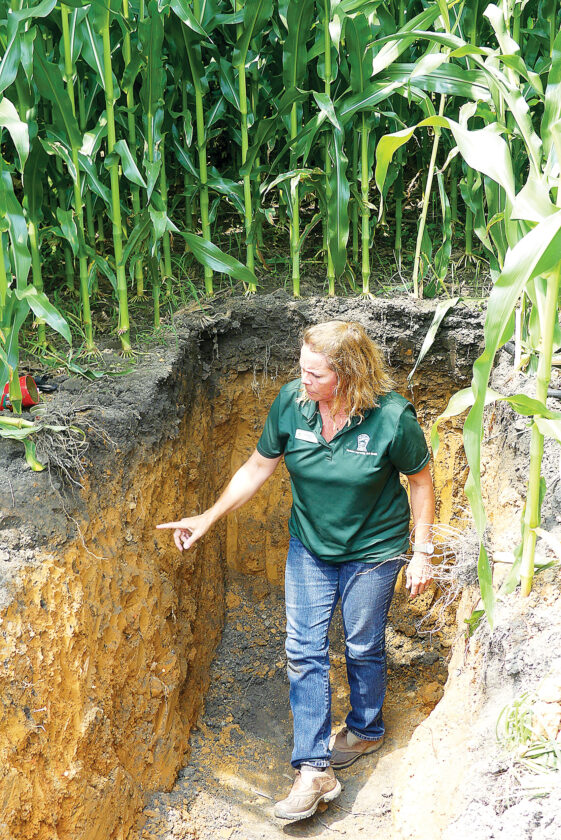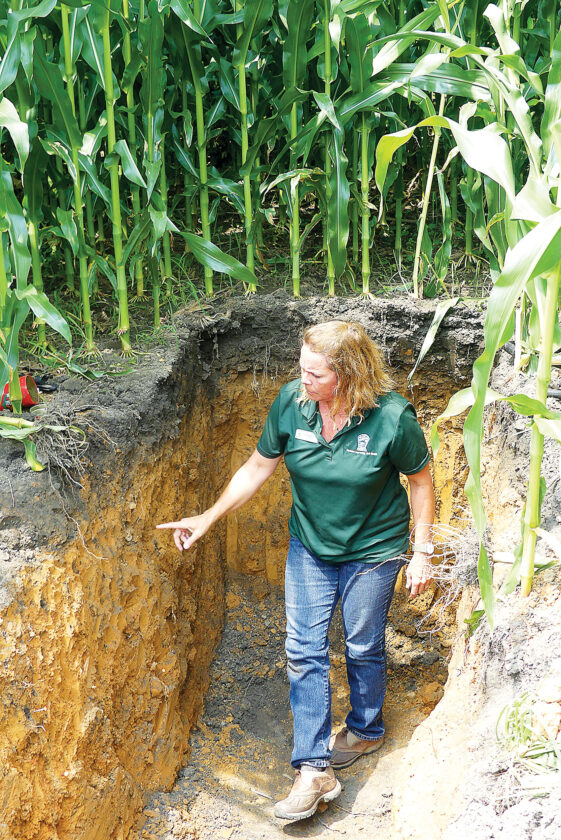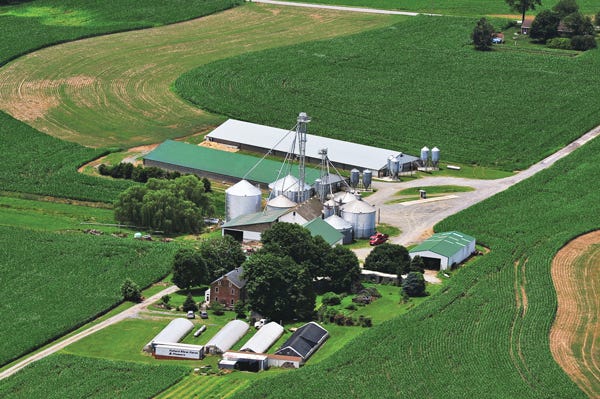
PA Homesteaders: Unlock Sustainable Farming Funds with the Inflation Reduction Act!
Imagine turning your Pennsylvania homestead into a thriving model of sustainable agriculture, powered by funding you never thought possible. The Inflation Reduction Act (IRA) is opening doors for small-scale farmers like never before. This landmark legislation is designed to support climate-smart agriculture practices and reduce emissions while simultaneously bolstering local economies.
This post will guide you through accessing IRA funds in Pennsylvania, focusing on two key programs: the Environmental Quality Incentives Program (EQIP) and the Conservation Stewardship Program (CSP). We'll break down the complexities, provide actionable steps, and share a real-life (well, fictional!) example of how these programs can transform your homestead.
Understanding the IRA
The Inflation Reduction Act represents a significant investment in climate-smart agriculture. Its goals are multifaceted, aiming to reduce greenhouse gas emissions from the agricultural sector, promote healthy soil practices, and provide crucial support to small and mid-sized farms.
For Pennsylvania homesteaders, the IRA offers a unique opportunity to embrace sustainability while enhancing the financial viability of their operations. By providing access to funding for sustainable practices, the IRA empowers homesteaders to improve land management, conserve resources, and build more resilient communities. This influx of support allows you to implement improvements that might have been financially out of reach, helping to create a more secure and environmentally sound future for your homestead.
Spotlight: EQIP and CSP in Pennsylvania
The IRA channels its agricultural funding primarily through existing USDA programs, with EQIP and CSP being two of the most impactful for Pennsylvania homesteaders.
EQIP (Environmental Quality Incentives Program)
EQIP provides financial and technical assistance to agricultural producers to implement conservation practices that address natural resource concerns and improve environmental quality. Think of it as a cost-sharing program designed to help you implement specific projects that benefit your land and the environment.
For Pennsylvania homesteaders, EQIP can be used to fund a variety of projects, including:
- Cover cropping: Improving soil health, reducing erosion, and suppressing weeds.
- No-till farming: Minimizing soil disturbance, conserving moisture, and enhancing carbon sequestration.
- Pasture management: Improving grazing practices, enhancing forage production, and protecting water quality.
- High tunnels: Extending the growing season, increasing crop yields, and improving pest management.
To learn more about EQIP opportunities in Pennsylvania, visit the Pennsylvania NRCS EQIP page: https://www.nrcs.usda.gov/programs/environmental-quality-incentives-program
CSP (Conservation Stewardship Program)
CSP rewards farmers who are already implementing sustainable practices and encourages them to adopt even more advanced conservation activities. It's designed for those who are already going above and beyond and want to be recognized and supported for their efforts.
Relevant examples for Pennsylvania homesteaders include:
- Rotational grazing: Improving pasture health, enhancing livestock performance, and reducing soil compaction.
- Wildlife habitat enhancement: Creating and maintaining habitats for beneficial insects, pollinators, and other wildlife.
- Water conservation: Implementing efficient irrigation systems, reducing water usage, and protecting water resources.
Explore the possibilities of CSP in Pennsylvania here: https://www.nrcs.usda.gov/programs/conservation-stewardship-program
EQIP vs. CSP: Which is Right for You?
The key difference lies in your current level of conservation practices. EQIP is ideal if you're looking to implement new conservation practices, while CSP is best suited if you're already actively engaged in sustainable farming and want to enhance your existing efforts. If you are just starting out with sustainability, EQIP is likely the better choice. If you've been practicing sustainable agriculture for years, CSP may be a more rewarding option.
Case Study: Meet Sarah from Lancaster County
Let's imagine Sarah, a homesteader in Lancaster County, PA. She owns a beautiful 10-acre property with a thriving mixed vegetable garden, a flock of chickens, and a small but promising orchard. She's passionate about sustainable agriculture, but faces several challenges: soil erosion during heavy rains, periods of water scarcity in the summer, and the constant battle against pests.
Sarah decided to explore EQIP and discovered she could receive funding to install a rainwater harvesting system and implement cover cropping. The rainwater harvesting system allowed her to collect and store rainwater for irrigation, reducing her reliance on well water during dry periods. The cover cropping, using a mix of legumes and grasses, significantly improved her soil health, reducing erosion and increasing its water-holding capacity.

"EQIP was a game-changer for us," Sarah says. "We're seeing healthier plants, using less water, and feeling more confident about the future of our farm. It's not just about the money; it's about the knowledge and support we received from the NRCS that made all the difference."
Navigating the Application Process in Pennsylvania
Applying for EQIP and CSP can seem daunting, but it's a manageable process if you take it step-by-step:
- Visit your local NRCS office. They're your primary point of contact and can provide personalized guidance. Find your nearest office here: https://offices.sc.egov.usda.gov/locator/app.
- Contact a conservation planner. They will work with you to develop a conservation plan tailored to your homestead's specific needs and goals. This is a crucial step in determining which practices are best suited for your land.
- Attend a workshop or webinar on EQIP and CSP application requirements. These sessions provide valuable insights into the application process and help you avoid common mistakes. Check the Pennsylvania NRCS website for upcoming events.
- Submit your application by the deadline. The deadline is typically in the fall; check the NRCS website for the exact date. Ensure your application is complete and accurate.
To maximize your chances of success:
- Highlight your commitment to sustainability. Emphasize your passion for environmentally friendly farming practices.
- Provide detailed project plans. Clearly outline your proposed projects, including timelines, budgets, and expected outcomes.
- Demonstrate a clear understanding of the program requirements. Show that you've done your research and understand the eligibility criteria and program guidelines.
Community Resilience and Advocacy
Connect with local organizations that support sustainable agriculture in Pennsylvania, such as the Pennsylvania Association for Sustainable Agriculture (PASA) and the Rodale Institute. These organizations offer valuable resources, networking opportunities, and advocacy support.
Advocate for policies that support sustainable agriculture and small farmers. Your voice matters! Contact your elected officials and let them know you support initiatives that promote climate-smart agriculture and provide funding for programs like EQIP and CSP.
Conclusion
The Inflation Reduction Act presents a transformative opportunity for Pennsylvania homesteaders. By leveraging EQIP and CSP, you can access the funding and technical assistance needed to implement sustainable practices, improve your land, and build a more resilient future for your farm and community.
Don't let these opportunities pass you by. Start exploring EQIP and CSP today, contact your local NRCS office, and take the first step towards a more sustainable and thriving Pennsylvania homestead! Share this post with other Pennsylvania homesteaders and let's grow a greener future together.